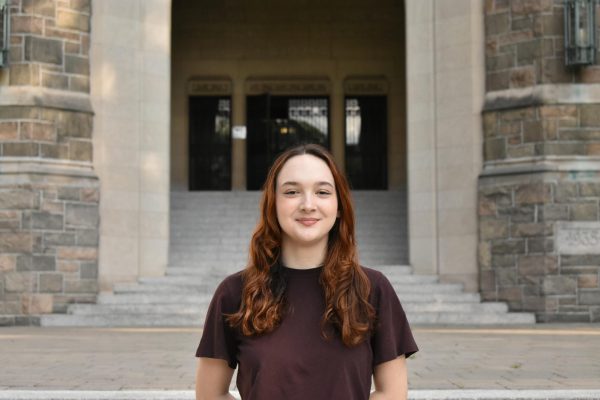New York City experienced severe flooding across all five boroughs on the weekend of Sept. 30, causing closures of several vital Bronx highways and Metro North lines. A public safety advisory was released at noon, many hours after the rain initially made landfall. Despite the fact that the city went into a state of emergency by mid-afternoon, Fordham remained open. A follow up response ceased Ram Van service between campuses at 7 p.m.
The university is not foreign to experiencing severe weather. Although this past September was New York City’s wettest on record, early autumn has always been considered New York’s unofficial rainy season. On Sept. 1, 2021, the university was ravaged by Hurricane Ida, forcing the second and third day of classes to be canceled as a result of severe flooding in a handful of residence halls, Walsh Library and the basement of Keating Hall. Many priceless artifacts were destroyed in Ida’s wake as a result of nearly four feet of water inhabiting Walsh Library’s basement, with lesser but still substantial amounts of rainwater in other basements across campus.
Since that event, the university has made a concerted effort to strengthen its infrastructure against flood waters and other severe weather.
“The University has made improvements to Walsh Library to reduce risk or damage from flooding, and facilities continue to harden campus infrastructure against severe weather,” said Robert Fitzer, associate vice president for Public Safety.
“Additionally, our Public Safety officers monitor conditions on campus and direct University assets to address unsafe conditions caused by the storm immediately.”
Additionally, decisions surrounding class cancellation and school closure are determined by the university’s Emergency Management Team (EMT). The EMT consists of a group of staff members from various academic disciplines and departments.
“We [consider] several factors, including class schedules, road conditions during the affected times, the state of mass transit, and whether our facilities and grounds staff would be able to have the University ready in time for classes,” said Fitzer.
“In many instances, we will not close the University or cancel classes, and instructors will be directed to consult with their Academic Deans or department heads to make alternative arrangements such as asynchronous learning or remote classes. Community members should always consider local conditions when traveling to and from campus and contact their instructors for alternative arrangements if they cannot attend classes.”
Many students were upset about the perceived inaction of the university, as Fordham remained fully operational despite New York’s governor recommending to avoid mass transit.
However, the department of public safety insists that school closure is a holistic decision, prepared in advance as much as possible.
“We review numerous weather reports, including a paid subscription service that offers a meteorologist with whom we can communicate to provide information specific to our campuses,” said Fitzer.
“We will also have conversations with various University entities, such as Facilities, Grounds, Dining Services, and Ram Van, to ensure they are aware and preparing for the weather event.”









































































































































































































